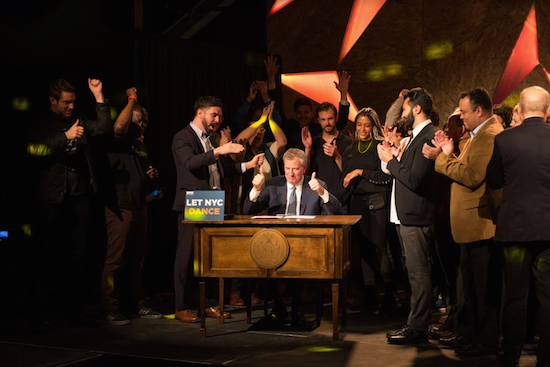It’s Official! Mayor de Blasio signs legislation to repeal racist Cabaret Law
NYC Can Dance Again

Mayor Bill de Blasio (center) and Councilmember Rafael Espinal (left) celebrate the signing of legislation that repealed the Cabaret Law. Courtesy of NYC Mayor’s Office
Many notable names have graced the stage at Brooklyn’s newest nightclub Elsewhere.
From Tove Lo to Detroit techno legends Stacey Pullen and Juan Atkins, thousands have swarmed to the three-week-old East Williamsburg hotspot.
But it was, perhaps, Monday’s guest who elicited the most praise, and who will likely go down as one of the venue’s more historic visitors.

Brooklyn Boro
View MoreNew York City’s most populous borough, Brooklyn, is home to nearly 2.6 million residents. If Brooklyn were an independent city it would be the fourth largest city in the United States. While Brooklyn has become the epitome of ‘cool and hip’ in recent years, for those that were born here, raised families here and improved communities over the years, Brooklyn has never been ‘uncool’.